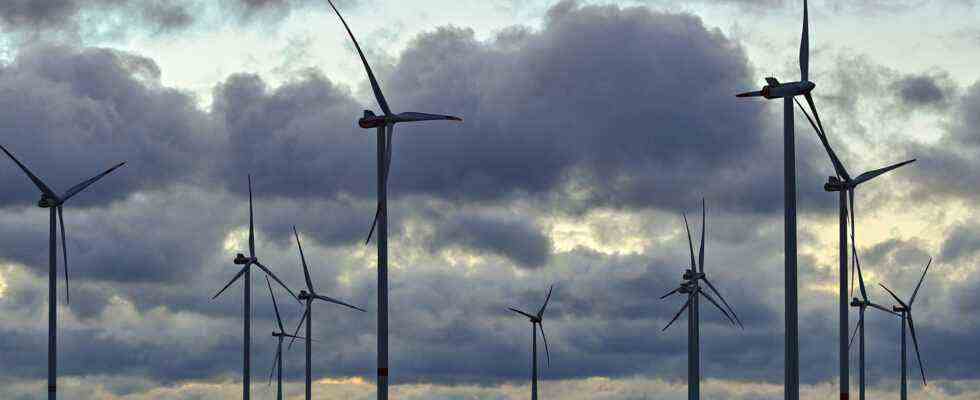Status: 07.01.2022 4:24 p.m.
At the turn of the year, the EEG surcharge on the electricity price was reduced. The end consumers, who should be relieved in this way, have so far not noticed anything, as reported by two comparison portals.
The EEG surcharge, which has been lower since this year, has not yet reached consumers, according to two comparison portals. “The electricity suppliers do not pass the lower EEG surcharge on to their customers because the purchase prices on the electricity exchange have multiplied,” said Verivox. In addition, the fees for the power grids have risen by four percent on a nationwide average. “At over 35 cents per kilowatt hour, the price of electricity for households is higher than ever before.” The Check24 portal comes to a similar conclusion.
The EEG surcharge applies to all electricity consumers in Germany and is levied as a state part of the electricity costs. It is intended to finance the expansion of renewable energies. It is laid down in the Renewable Energy Sources Act (EEG).
The target of the reduction has not yet been achieved
As of January 1, the EEG surcharge had been reduced by around 43 percent – from 6.5 cents per kilowatt hour (Kwh) to 3.7 cents. Former Economics Minister Peter Altmaier (CDU) said after the announcement in October that it will fall to its lowest level in ten years in 2022. “A model household with a consumption of 5000 kWh pays almost 167 euros less to finance the expansion of renewable energies”, Check24 announced today.
The strong decrease compared to previous years can essentially be traced back to the development of the electricity exchange prices and the federal subsidies. The promotion of renewable energies has been partially financed by the federal budget since 2021, supported among other things by the income from the introduced CO2 pricing. Until 2020, the entire cost of the expansion was paid from the EEG surcharge. The reduction is good news for consumers, said Altmaier in October. Because he expects the energy suppliers to pass this reduction on to their electricity customers.
At least for the time being, that doesn’t seem to be the case. “So far, only a few providers have reduced their prices,” says Check24. Whether and to what extent the relief from the EEG surcharge will actually reach the end customers this winter also depends on the further development of the electricity price on the exchange.
Lindner guarantees financial support
According to a study by Check24 from November, 192 basic suppliers had already increased their electricity prices for 2022 or at least announced increases. On average, the increase would be nine percent and would affect around 1.6 million households. For a model household with a consumption of 5000 kWh, this would mean additional costs of an average of 146 euros per year.
On the other hand, 21 basic electricity suppliers reduced their prices at the turn of the year – by an average of 2.3 percent. Around 1.2 million households will benefit from this. On average, a model household saves around 37 euros a year. The price of electricity has repeatedly reached new record highs over the past few months. The main reasons are the exploding wholesale prices for natural gas, hard coal and CO2 emission certificates, the increasing demand for electricity and lower generation capacities due to the phase-out of coal.
In view of the high energy prices, Federal Finance Minister Christian Lindner (FDP) promised some consumers financial support yesterday. The development of energy prices is a real burden, especially for people with low incomes, he said at the traditional Epiphany meeting of the FDP in Stuttgart. One wants to relieve the citizens also in the long term, for example by the complete elimination of the EEG surcharge. But it also has to be acted on in the short term.

